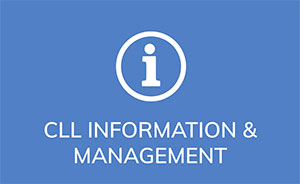TG Therapeutics, after a decade of development, is withdrawing its application for the combination of ublituximab and UKONIQ (umbralisib) (combination referred to as U2) for the treatment of adult patients with chronic lymphocytic leukemia (CLL) and small lymphocytic lymphoma (SLL).
It has also voluntarily withdrawn umbralisib from the market for the already approved indications of adult patients with marginal zone lymphoma (MZL).
This is because of an increasing trend of a higher mortality rate (MR) in the U2 arm compared to the control arm in clinical trials. The argument was made that the higher death rates were primarily due to COVID-19 infections in the U2 arm, as therapy was ongoing during the pandemic, compared to the fixed duration of the control arm that was primarily finished before the scourge of COVID-19.
TG Therapeutics decided to reassess and halt its CLL / SLL new drug application with the FDA. We expect that more data will emerge to explain what informed this major decision.
The Oncologic Drugs Advisory Committee (ODAC) meeting at which I was scheduled to speak on this topic has been canceled due to TG Therapeutics’ decision to withdraw.
However, I still have a written submission that will go forward to the ODAC committee for a separate meeting on April 21. According to the FDA’s official statement, those convened at this meeting will discuss “the appropriate approach for phosphatidylinositol-3-kinase inhibitors (PI3Ki) currently under development in patients with hematologic malignancies and whether randomized data should be required to support a demonstration of substantial evidence of effectiveness and that the drug is safe for its intended use in the proposed population”. Unfortunately, MEI Pharma’s PI3Ki, Zandelisib (ME-401), with its innovative on and off-dosing schedule to reduce toxicity, is caught in this FDA shift towards demanding Phase 3 trials for approval. With accrual to such trials fraught with difficulty, this is likely to delay approval for years and significantly decrease the chances that we will ever see any of these drugs approved.
Many PI3Ki have already disappeared.
Duvelisib (Copiktra), which is indicated for the treatment of patients with relapsed or refractory follicular lymphoma (FL) after at least two prior systemic therapies, was voluntarily withdrawn from the market by its developer Secura Bio, Inc. in Dec. 2021. In 2018, duvelisib was granted accelerated approval by the FDA for the withdrawn indication. However, continued approval was contingent upon an additional confirmatory trial. That trial won’t be completed now. However, it can still be used for CLL / SLL.
We already announced that Gilead has withdrawn its full approval application for idelalisib (Zydelig) for SLL. Their confirmatory trial was not accruing. However, it is already and still is approved for CLL.
We don’t want medications that aren’t safe, but we also don’t want fewer options. Due to the real safety concerns around PI3Ki, the FDA makes it harder for them to get to patients who might benefit. They are justifiably cautious, looking out for us. They make strong arguments about the risks.
I appreciate that, but I have a different take. CLL remains an unsolved problem. We need more therapies, even ones with a considerable downside.
There has never been a question that these drugs work. They powerfully block the same B-cell receptor (BCR) blocked by BTKi but by the different PI3K pathway. The problem is that PI3Ki are associated with common, sometimes dangerous, or even fatal side effects, including infections and auto-immune complications, especially colitis. Patient and physician education about close monitoring and when to hold the medications can mitigate many but not all these problems.
I think informed patients, in consultation with their doctors, should have the choice of new PI3Ki with a complete understanding of their potential risks and benefits.
The chances of that happening are now markedly diminished, if not completely dashed. The FDA makes it clear that they are skeptical of their future in their statement: “The saga of PI3K inhibitors in hematological malignancies: survival is the ultimate safety endpoint”, published in The Lancet on 4/14/22. Unfortunately, the entire article is behind a paywall, but here is part of its summary of its data review:
“Although not formally powered for statistical testing and with a small number of events in some instances, the consistent findings of decrements in overall survival in six trials with serious and life-threatening toxicity profiles are unprecedented in oncology and provide credence that the detriments in overall survival (OS) are attributed to the PI3K inhibitors.”
This should give us pause. These drugs should not be anyone’s first choice! CLL Society has long argued that all that ultimately matters for patients is OS.
The FDA sees no role for single-arm trials for PI3Ki to gain approval, and the necessary randomized trials they want are difficult to accrue. So, unless something significant changes, we are unlikely to see any new PI3Ki approved.
Here is the TG Therapeutics press release: TG Therapeutics Announces Voluntary Withdrawal of the BLA/sNDA (biologics license application/supplemental new drug application) for U2 to Treat Patients with CLL and SLL.
I remember the heady promise of CAL-101 (now idelalisib) around a decade ago. I came very close to enrolling in an early CAL-101 trial but chose a trial of PCI-32765 (now ibrutinib) instead. At that time and for several years after, we didn’t know which would be proven to be the safer and more efficacious drug. We know that now that the BTKi are the clear winners. But despite the sober warnings, we still argue that the more second choices we have, the better, even if they are fraught with mortal risk. Running out of therapy choices with an aggressive relapsed/refractory CLL / SLL is also fraught with mortal risk.
CLL Society will continue to monitor and report on these and other changes to the therapeutic landscape and advocate in favor of more options for patients.
Stay strong. We are all in this together.
Brian
Brian Koffman MDCM (retired) MS Ed (he, him, his)
Co-Founder, Executive VP, and Chief Medical Officer
CLL Society, Inc.



